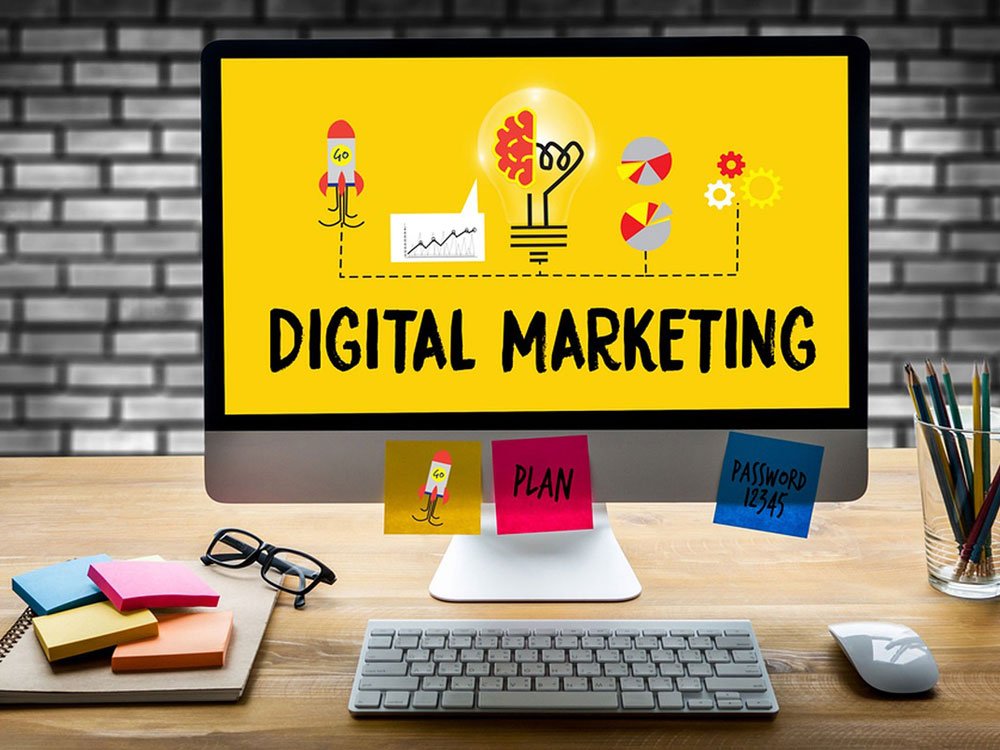
What role does customer relationship management (CRM) software play in digital marketing?
Last updated: March 27, 2024 | Digital Techtune
Customer Relationship Management (CRM) software has emerged as an indispensable tool in the realm of digital marketing, facilitating businesses in establishing, maintaining, and enhancing relationships with their customers. In the contemporary landscape, where consumers are bombarded with information and choices, CRM software serves as a linchpin in orchestrating personalized, data-driven marketing strategies. This essay delves into the multifaceted role played by CRM software in digital marketing, exploring its significance, functionalities, and impact on businesses.
Introduction
The proliferation of digital channels and the advent of big data have revolutionized the way businesses interact with their customers. In this dynamic environment, CRM software serves as the backbone of digital marketing efforts, enabling organizations to streamline customer interactions, leverage data insights, and drive sustainable growth. This essay elucidates the pivotal role of CRM software in digital marketing, elucidating its functions, benefits, and implications for businesses.
Understanding CRM Software
CRM software encompasses a suite of applications designed to manage and analyze customer interactions throughout the customer lifecycle. It consolidates customer data from various touchpoints, including websites, social media, emails, and transactions, into a centralized database. By capturing and organizing this information, CRM software provides businesses with a comprehensive view of their customers, enabling them to tailor marketing strategies to individual preferences and behaviors.
Enhancing Customer Engagement
One of the primary functions of CRM software in digital marketing is to enhance customer engagement. By segmenting customers based on demographics, purchase history, and interaction patterns, CRM software enables businesses to deliver targeted and relevant content across multiple channels. Personalized communication fosters a sense of connection and loyalty, driving repeat purchases and advocacy.
Segmentation and Targeting
CRM software empowers marketers to segment their customer base according to various criteria, such as demographics, psychographics, and purchase behavior. By categorizing customers into distinct groups, businesses can tailor their marketing efforts to cater to specific needs and preferences. This targeted approach enhances the effectiveness of marketing campaigns, maximizing ROI and customer satisfaction.
Data-driven Decision Making
In the era of big data, CRM software serves as a valuable tool for extracting actionable insights from vast amounts of customer information. Through advanced analytics and reporting functionalities, businesses can uncover trends, patterns, and correlations within their data, informing strategic decision-making processes. By leveraging data-driven insights, marketers can optimize marketing campaigns, allocate resources effectively, and capitalize on emerging opportunities.
Automation and Workflow Management
CRM software streamlines marketing workflows by automating repetitive tasks and processes, such as lead nurturing, email campaigns, and customer follow-ups. Automated workflows enable businesses to deliver timely and relevant communications to customers, without manual intervention. This not only saves time and resources but also ensures consistency and accuracy across all customer touchpoints.
Integration with Digital Channels
CRM software integrates seamlessly with various digital marketing channels, including email, social media, mobile, and web. This interoperability enables businesses to orchestrate omnichannel marketing campaigns, delivering a cohesive and personalized experience to customers across multiple touchpoints. By synchronizing data and interactions across channels, CRM software ensures a unified and consistent brand presence, enhancing customer engagement and satisfaction.
Customer Retention and Loyalty
CRM software plays a crucial role in customer retention and loyalty by nurturing existing relationships and fostering long-term engagement. By tracking customer interactions and behavior, businesses can identify opportunities to upsell, cross-sell, and re-engage dormant customers. Additionally, CRM software facilitates loyalty programs, rewards schemes, and personalized offers, incentivizing repeat purchases and advocacy.
Predictive Analytics and Forecasting
Advanced CRM software leverages predictive analytics algorithms to anticipate future customer behavior and trends. By analyzing historical data and identifying patterns, businesses can forecast demand, identify potential churn risks, and optimize marketing strategies accordingly. Predictive analytics empowers marketers to stay ahead of the curve, proactively addressing customer needs and preferences before they arise.
Customer Service and Support
CRM software extends beyond marketing to encompass customer service and support functionalities. By integrating customer service channels, such as chatbots, helpdesks, and ticketing systems, businesses can deliver timely and personalized assistance to customers. Seamless communication and resolution of issues enhance customer satisfaction and loyalty, driving positive word-of-mouth and brand advocacy.
Measuring and Evaluating Performance
CRM software provides robust reporting and analytics capabilities, allowing businesses to measure and evaluate the performance of their marketing initiatives. Key performance indicators (KPIs), such as customer acquisition cost (CAC), customer lifetime value (CLV), and return on investment (ROI), offer insights into the effectiveness and efficiency of marketing campaigns. By tracking KPIs and metrics, marketers can identify areas for improvement, refine strategies, and optimize resource allocation.
Challenges and Considerations
While CRM software offers myriad benefits for digital marketing, its implementation poses certain challenges and considerations. Integration with existing systems, data privacy concerns, and organizational resistance are among the common hurdles faced by businesses. Moreover, ensuring data accuracy, maintaining compliance with regulatory requirements, and adapting to evolving customer preferences require careful planning and execution.
Conclusion
CRM software plays a pivotal role in digital marketing, serving as a catalyst for customer engagement, personalization, and data-driven decision-making. By harnessing the power of CRM software, businesses can cultivate lasting relationships with their customers, driving loyalty, advocacy, and sustainable growth. As technology continues to evolve and consumer expectations evolve, the role of CRM software in digital marketing will only become more pronounced, underscoring its significance as a strategic imperative for businesses in the digital age.

